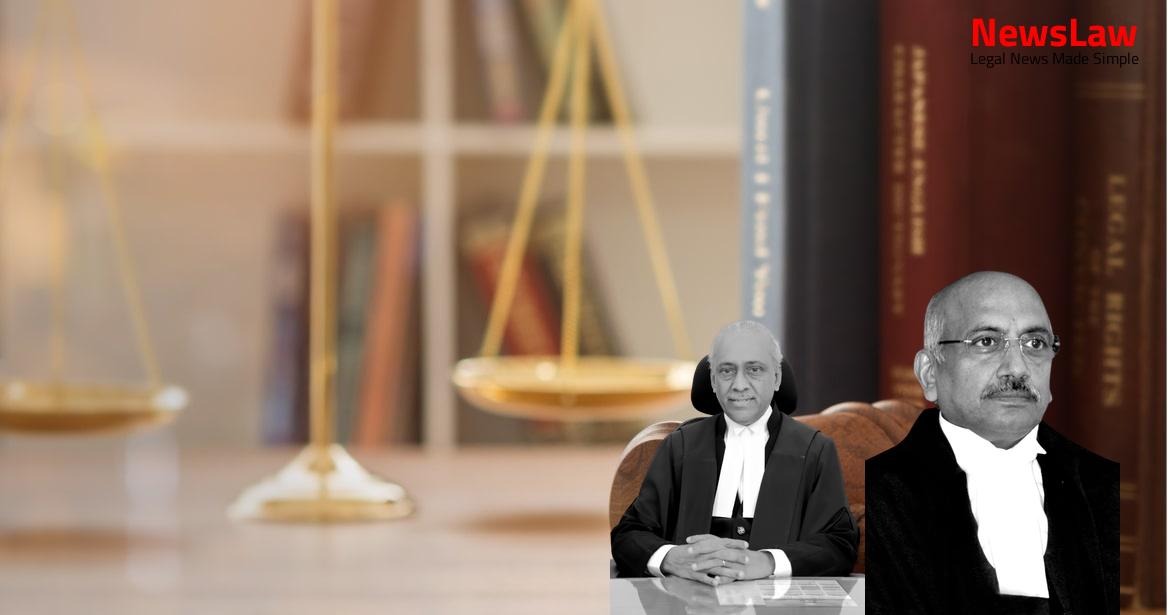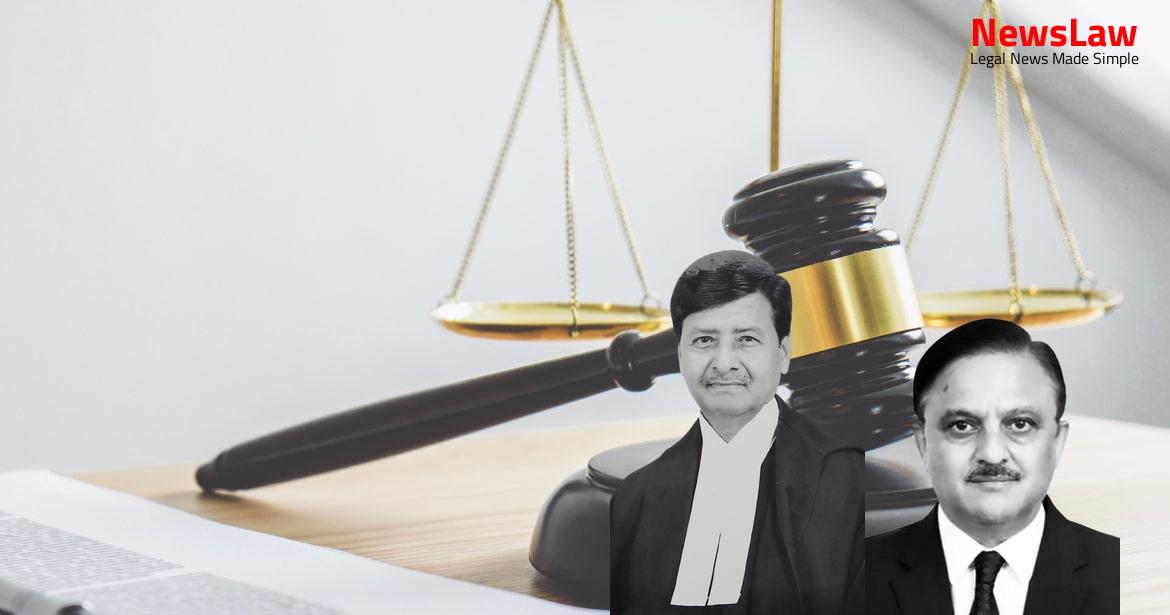Delve into the legal complexities of a recent employment dispute case where a domestic inquiry and misconduct allegations were at the heart of the matter. The court’s thorough legal analysis emphasized the significance of adhering to proper procedures and ensuring fairness in disciplinary actions. Stay tuned to learn more about the nuances of this intriguing legal case.
Facts
- Order dated 20.1.2021 challenged in present appeal by the employer.
- Order dated 22.10.2008 by Industrial Tribunal upheld by High Court of Allahabad.
- Workman removed from service as conductor on 14.12.2001 due to misconduct.
- Witness supported report submitted to Assistant Regional Manager as Ex.P/10.
- No statement filed by any passengers.
- Industrial dispute raised and referred to Tribunal.
- Inspector found none of the passengers had tickets as conductor did not issue any.
- Conductor misbehaved with Inspector during statement recording.
- Conductor used unruly words with the Inspector.
- The Tribunal set aside the removal order due to failure to record statements of passengers without tickets.
- The Inspector was not proven to have inspected the bus on 12.11.1998.
- The Tribunal deemed the domestic inquiry unfair and improper.
- Employer presented evidence through an Assistant Traffic Inspector.
- Question raised about why an FIR was not filed if the conductor misbehaved.
- The Industrial Disputes Act allows disputing domestic inquiries before the Tribunal.
- The Tribunal found that 16 passengers without tickets were not examined, leading to the punishment order being set aside.
Also Read: Analysis of High Court’s Decision on Registration Certificate and Onus of Proof in Sales Tax Case
Arguments
- Learned counsel for the appellants-employers argued that the Indian Evidence Act, 1872 applies to all judicial proceedings in or before any Court, but since domestic inquiry is not by a Court, strict rules of the Evidence Act do not apply.
- A three-Judge Bench case of State of Haryana & Anr. v. Rattan Singh was cited where the Court held that in a case involving a conductor not issuing tickets, the rules of Evidence Act did not strictly apply.
- In another case, U.P. State Road Transport Corporation v. Suresh Chand Sharma, the High Court’s order was set aside as passengers without tickets were not examined and cash with the employee was not checked.
- The Court found that the punishment of dismissal from service was not disproportionate to the proven delinquency of the employee based on previous judgments.
Also Read: Land Compensation Dispute Legal Analysis
Analysis
- In the case of Workmen of M/s Firestone Tyre and Rubber Co. of India (P.) Ltd. v. Management & Ors., it was established that authorities under the Act have the power to reappraise evidence and confirm misconduct findings.
- Employers can present evidence to prove misconduct if a domestic inquiry is found to be flawed.
- The employer’s ability to prove misconduct either in the written statement or at a later stage was discussed in the Karnataka State Road Transport Corporation v. Smt. Lakshmidevamma & Anr. case.
- A conflict between judgments in Shambhu Nath Goyal v. Bank of Baroda & Ors. and Rajendra Jha v. Presiding Officer, Labour Court, Bokaro was examined in the Karnataka State Road Transport Corporation case.
- The Allahabad High Court decision in the U.P. State Road Transport Corporation through M.D. & Ors. v. case was considered by the learned Single Bench.
- Initiation of criminal proceedings against an employee does not prove misconduct in departmental proceedings.
- Lack of basic evidence on record makes the Tribunal’s decision not illegal or unwarranted.
- The employer’s representative was not cross-examined on not inspecting the bus on a specific date.
- The Inspector’s findings about passengers not issued tickets were not disputed in cross-examination.
- Non-lodging of FIR cannot be used against witnesses examined by the employer.
- Low-fare paying passengers may hesitate to get involved in actions against the conductor.
- Conductor’s misbehavior with the Inspector may explain the inability to record passengers’ statements.
- The Inspector’s inability to record names and addresses of passengers is justified.
- The unchallenged statement of the Inspector adds weight to the employer’s evidence of misconduct.
- The Tribunal misapplied basic legal principles.
- The High Court wrongly confirmed the Tribunal’s order.
- The three reasons given by the Tribunal for removal from service were unsupported by evidence and perverse.
- The order of removal from service cannot be considered unfair or unjust, therefore no interference by the Tribunal or High Court is warranted.
Also Read: Landmark Judgment on Compensation for Fatal Accident
Decision
- The order of punishment dated 14.12.2001 has been restored.
- The appeal has been allowed.
- The orders of the High Court and of the Tribunal have been set aside.
Case Title: UTTAR PRADESH STATE ROAD TRANSPORT CORPORATION Vs. GAJADHAR NATH (2021 INSC 846)
Case Number: C.A. No.-007536-007536 / 2021



